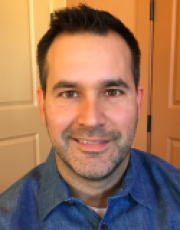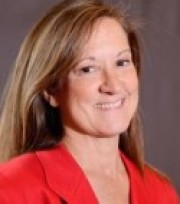This mentor is a licensed professional counselor (LPC), a licensed marital and family therapist (LMFT) and also the Director of Programs and Counseling for a domestic violence intervention services program (DVIS). She has broad experience in her field including working in private practice as well as holding a number of positions in a psychiatric hospital for children and adolescents as well as her current position as a Director at DVIS. In her article, she discusses the role of a counselor, the personal characteristics you must have if you want to work in this field and the education and training you need to become a LPC. Her article should be of interest to anyone who is considering this career field as well as people interested in learning more about mental health counseling and the types of services that are available.
Overview
 I did not go to college with the idea of becoming a Licensed Professional Counselor. As an undergraduate, I pursued a liberal arts degree with a major in history. After I graduated, I volunteered to work as a big sister at the Juvenile Bureau of the District Court. Following volunteer service, I was offered a job at Lakeside Home, a residential treatment center operated by the district court. The home provided counseling services to adolescents to help them change their lives .. There were normally about 25 adolescents in the home at any one time. We did therapy sessions with individuals and their families and also stayed some nights in the dorm with these children. . Because Lakeside was part of the criminal justice system, I was able to get a national law enforcement grant to pursue a Masters in Counseling at the University of Tulsa, which I completed in two years while working at the home. I also did some training at the Marion Illinois Federal Correction facility, which at the time was the highest security prison in the Federal system.
I did not go to college with the idea of becoming a Licensed Professional Counselor. As an undergraduate, I pursued a liberal arts degree with a major in history. After I graduated, I volunteered to work as a big sister at the Juvenile Bureau of the District Court. Following volunteer service, I was offered a job at Lakeside Home, a residential treatment center operated by the district court. The home provided counseling services to adolescents to help them change their lives .. There were normally about 25 adolescents in the home at any one time. We did therapy sessions with individuals and their families and also stayed some nights in the dorm with these children. . Because Lakeside was part of the criminal justice system, I was able to get a national law enforcement grant to pursue a Masters in Counseling at the University of Tulsa, which I completed in two years while working at the home. I also did some training at the Marion Illinois Federal Correction facility, which at the time was the highest security prison in the Federal system.
After being at Lakeside for seven years, I was offered a position as Clinical Director at Shadow Mountain, a psychiatric hospital for children and adolescents where I worked for fifteen years. There I held a variety of managerial positions including: Director of Outpatient Services, Director of Inpatient Services and Associate Administrator. I also continued to work directly with children and their parents in individual and group therapy sessions as well as seeing some clients in my own private practice.
Many of our patients at the hospital suffered trauma from sexual abuse .. I developed programs specifically to help them better deal with the abuse they suffered. I also worked with counselors and therapists who had just gotten their Masters degrees and were completing the required two years of clinical supervison under someone like myself before they could be licensed. While I helped them with their own cases, I also emphasized to them that to be an effective counselor, they must stay within the ethical boundaries of a relationship between a counselor and their client. For example, you cannot step outside professional boundaries and have a dual relationship where you are both a therapist and a business partner. To be an effective counselor, it is critical that you build a relationship where you stay within relationship boundaries so your client knows that they can trust you. There are also issues relating to the confidentiality and privacy of a client’s information that are important for them to understand as another way to build trust. The National Board for Certified Counselors, an organization where I have received certification, provides a detailed code of ethics that discusses the ethical standards a LPC is expected to meet: http://www.nbcc.org/assets/ethics/nbcc-codeofethics.pdf.
After fifteen years working at the hospital, I went into full time private practice and after three years, I was offered a job as the Director of Programs and Counseling Services at DVIS. I feel this is important work. Many women come to us in trauma after having been the victim of violence. Our number one job is to keep them safe. This can involve getting the victim into our shelter, helping them with transitional living arrangements, helping the victim obtain protective orders from the court, providing them and their family with a range of counseling options and working with the offenders to stop the violence. We also provide advocates to the hospital when they are providing rape exams..
Role of a Counselor
A counselor’s role is to provide the support a person needs to let him or her make changes in their lives so they can resolve problems and lessen the symptoms they may have.. In order to help them make changes, the client must know they are able to trust you before they share their private thoughts and feeling with you. While trust must be earned over time, I emphasize that you should begin by establishing a rapport with a patient by listening and getting to know the individual on a personal level and show empathy. This means conveying a sense of compassion without judgment. To build trust, it is also important that you build confidence in your client that you will help them find a resolution to the issues that are troubling them. A counselor also nurtures feelings of hope and helps the client build their self-esteem.
Therapists often do assessments as part of the process of treating a client. There are a wide variety of assessments available for almost all the kinds of problems a client may be facing. These and other written questionnaires help give you a better idea of your client’s thoughts, thought processes and experiences so you can better design a therapy program that will address that individual’s specific needs. In addition, using the ACE(Adverse childhood experiences) questionnaire helps the adult client identify childhood trauma experiences. Unresolved adverse childhood experiences can impact the adult in terms of their choice of partners, and parenting, as well as their mental and physical health.
While LPCs normally help people cope with difficult life events like physical illness, death of loved ones, and relationship problems or divorce, you may find that some of the people you encounter have other mental health issues such as bipolar disorder, depression, and anxiety.. LPCs need to know when to refer clients for other services or for medication.. LPCs also need know how to identify when abuse may be happening or when there is a risk of suicide or other violence that needs intervention.
An LPC cannot prescribe drugs. However, drugs can be one form of effective treatment along with your therapy when people experience things like depression and anxiety. While you may feel that these drugs could have a benefit for your client and suggest they see a doctor about a prescription, taking medication is ultimately a personal choice for your client to make. If they do decide to try a medication, they may be comfortable working with their family physician or may prefer working with a psychiatrist. You need to be involved in helping monitor your client’s progress if they begin using any kind of medications.
Once you are licensed, you have a number of professional opportunities available to you. Therapists and counselors work in hospitals, schools, mental health clinics, jails and prisons. Veteran clinics are also hiring more therapists and counselors because of things like PTSD and other mental illness caused by the stress of war. The number of people receiving mental health treatment is also growing because getting treatment does not have the same stigma that it did even ten or twenty years ago. For this reason, more people are going for treatment. There are a lot of people who potentially need this kind of help. For example, about 20% of the people in the US suffer from depression at some time in their live and about 15% suffer from some form of anxiety.
How to Prepare of Become and LPC
There are a lot of opportunities for people to volunteer in hospitals, schools and agencies like I did where you can get first hand experience in the kind of environment you would work as an LPC or counselor. I would suggest first volunteering as a good way to find out if being a counselor is a career you would like to pursue.
It is not necessary to get an undergraduate degree in psychology. The only educational requirement to become a licensed therapist or counselor in most states is your Master’s Degree in Counseling or a related field from an accredited school. After you receive your degree, licensing requirements vary by state. In my state of Oklahoma, you cannot receive a license until you have also completed two years of supervised work experience under a qualified clinical supervisor
Certifications can also be helpful to getting employment and attracting clients. While certification is not a license, it does demonstrate competence in a specific field of counseling based upon your education, experience, and by passing an examination on that specialty. You get certifications by submitting your academic credentials and work experience and by passing an examination in a particular area of counseling. I have the following certifications and professional memberships:
- · Certified Domestic and Sexual Violence Response Professional
- · National Certified Counselor
- · National Board of Certified Counselors
- · Clinical Member, American Association of Marriage and Family Therapy
You also are required to take 20 hours of continuing education each year to maintain your license. So you are constantly learning throughout your career.
Summary
I have thoroughly enjoyed working in the mental health field both as a counselor and in various administrative positions. You are always learning and working with interesting people every day. I also get a great deal of satisfaction seeing that the things I have done have helped a lot of people make positive changes in their lives. I have also been able to maintain a good balance in my career so that I have not experienced the burnout that many people in the field develop over time. I have been able to do this by continuing to work individually with clients by maintaining a private practice even as I work as a director at DVIS. While being a LPC can be personally rewarding because of all the people you have the opportunity to help, it is a profession that does not pay that well compared to other jobs that require the same amount of training. You must genuinely like and want to help people if you choose being a LPC as a career. The personal satisfaction is a great reward when you see how you have helped change peoples lives through your therapy and the programs you have initiated or helped design.
US Bureau of Labor Statistics for Licensed Professional Counselor
The median annual wage for mental health counselors was $40,080 in May 2012. The median wage is the wage at which half the workers in an occupation earned more than that amount and half earned less. The lowest 10 percent earned less than $25,430, and the top 10 percent earned more than $66,630.
In May 2012, the median annual wages for mental health counselors in the top five industries in which these counselors worked were as follows:
| Government | $48,060 |
| Hospitals | 43,190 |
| Outpatient care centers | 40,250 |
| Individual and family services | 40,200 |
| Nursing and residential facilities | 32,530 |
The median annual wage for marriage and family therapists was $46,670 in May 2012. The lowest 10 percent earned less than $25,540, and the top 10 percent earned more than $75,120.
In May 2012, the median annual wages for marriage and family therapists in the top five industries in which these therapists worked were as follows:
| Government | $61,230 |
| Offices of health practitioners | 45,090 |
| Outpatient care centers | 44,130 |
| Individual and family services | 41,960 |
| Nursing and residential care facilities | 37,450 |
Mental health counselors and marriage and family therapists generally work full time. Because counseling sessions are scheduled to accommodate clients who may have job or family responsibilities, some counselors and therapists work evenings and weekends.







